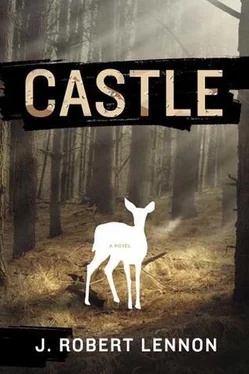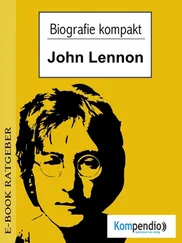By now the coffee was finished, and I poured myself a cup. All that was left of the mail, aside from the official-looking letter, was a thin white envelope without any return address. My own address was neither typed nor printed, but written, in a neat, precise hand. I carefully opened it, and unfolded the single sheet of paper within.
The paper bore only three words, in the same hand as that on the envelope: Doctor Avery Stiles.
I had no idea who had sent me this cryptic message, but the sight of those words caused my stomach to turn over. I sipped my coffee, in order to calm it.
The handwriting was not one I recognized, and I cast about in my mind for whose it might be. There were very few people who knew where I lived — my sister, the employees of the real estate agency, the lawyer’s office. Heph the electrician, Randall from the hardware store, Jeremy Pernice. And, of course, whomever those people might have told about me — though it seemed unlikely that my purchase of the house and land would qualify as gossip worthy information.
I studied the envelope and paper once more, and determined that the handwriting was liable to be a woman’s. And after a few moments, I had it, or thought I did: it must be the girl from the law office, the one who had insisted that my land’s previous occupant could not be identified. Perhaps she meant to indicate that Doctor Avery Stiles was that occupant! I got up, retrieved my land-purchase folder, and located the office’s number.
“Barris and Haight.”
“Hello, Andrea?”
“Yes?”
“This is Eric Loesch.”
There was the slightest hesitation before she said, “Yes, hello, sir!”
“Andrea, I’m calling about Doctor Avery Stiles.”
Again, a pause. “I’m afraid I don’t know who you mean.”
“I realize that you don’t wish for your employers to know that you told me his name. But perhaps you could answer yes or no to a few questions.”
The pause this time was longer, and when she spoke, her voice had changed. It was more pliant now. “All right,” she said.
“This is the man whose name was blacked out on the title abstract?”
“Yes,” came the muted reply.
“Do you know who this man is?”
“No…”
“Do you know why your employers wanted to keep this information secret?”
“I’m afraid not.”
“Will you meet me,” I asked, “to discuss this further?”
She sighed. “I don’t know if that will be necessary…”
“You’ll need to eat lunch. May I treat you?”
“No, I don’t…”
“Or coffee. Or just a moment of your time. I’ll tell you what. Meet me at 12:30 at the end of Jefferson Street, by the abandoned football field. You may stay in your car. I’ll just pull up beside you. I just want to ask you some questions.”
The wait for a reply was very long, this time, but her voice, when it returned, was resigned. “All right.” And then, as if someone were walking by, she said brightly, “That will be no trouble at all!”
“I can’t thank you enough, Andrea. I’ll see you then.”
“Goodbye,” she said, and hung up.
Her car was there, a little red Volkswagen with a crooked front fender. She had parked on the side of the road just before it turned to mud, and was facing south, toward town, presumably to reserve the possibility of a quick getaway. Frankly, I was surprised. I had assumed that she had no good reason to meet with me, and expected to have to stop by the law office to draw the information out of her. I pulled up slowly, giving her a friendly wave as I approached. As if by reflex, she waved back.
We rolled our windows down. Her car was filthy from the April mud and rain, though the sun shone today, as it had during my adventure on the rock. Having the taller vehicle, I was forced to lean down to speak to her, and she to tip her face up.
By any standard, she was a lovely girl, with wispy blond hair framing a face the shape of an ash leaf. Her eyes were gray, and her small pursed mouth betrayed her nervousness, and perhaps a fierceness that I had not, to my surprise, detected over the phone. She was dressed for work in a silk blouse and woolen skirt, but was huddled inside a ski jacket, despite the warm weather. A small diamond glinted on her ring finger, and I wondered what kind of man had managed to catch her. I smiled and thanked her for coming.
“I don’t have anything to tell you, really,” she said.
I merely nodded, remaining silent. It is the rare interlocutor who can bear to leave a silence uninterrupted.
She let out breath and trained her gaze out the windshield of her car. A pop station was playing quietly on her car radio. “So yeah,” she said.
I offered a gentle prompt. “Doctor Avery Stiles?”
She spoke without turning back to me, her voice full of resolve. “He was some kind of weirdo in the sixties,” she said. “Like a psychologist? He taught at the college but then got kicked out. That’s what they said anyway. I never heard of him.”
“Who’s ‘they’?”
“My boss, Mark.”
It was clear by her tone that she didn’t like this Mark — her presence here, I could see now, was an act of rebellion against him. I chuckled gently, as though to suggest that we all knew a Mark or two, and that it was right to stick it to them.
“Why didn’t he want me to know?” I asked.
Andrea turned to face me, a sour look on her face. “Beats me what his problem is,” she said. Her voice, freed from the constraints of the workplace, was very different from the one she used on the phone — casual, and a bit crass. “I asked why it was blacked out on the abstract, and he looked at me like I ought to just keep my little mouth shut and mind my own business. He just said, ‘Mr. Loesch doesn’t need to know that.’ So now I was curious, right? So I asked him why you didn’t need to know. And he said, ‘I’m sure he’s well aware that the land used to belong to Avery Stiles.’ And when I kept looking at him, he said, ‘I don’t know what Eric Loesch thinks he’s doing out there, and I don’t want to be involved in it.’ And that’s all he would say.”
“Interesting.”
It was she who remained silent now, gazing at me with annoyed anticipation. “So you don’t know who this guy is?” she said, finally.
“No, I don’t,” I said.
“And you’re not doing something weird out there?”
“No,” I answered, though I was unsure what, in Andrea’s view, would constitute weirdness. “Tell me something, Andrea,” I went on. “Did it seem to you that your boss knew something about me? That he had some prior knowledge about my life?”
She thought about it a moment. “I guess so.”
“But you don’t know what, exactly?”
A note of anxiety had begun to creep into her voice. “What,” she said. “Are you some kind of crazed killer?”
“Oh, I wouldn’t say crazed,” I joked.
Andrea, however, didn’t find it funny, and her face betrayed a moment of real fear before she shifted, quite deftly, to her previous sour expression. “So can I go now?” she asked, feigning nonchalance. “Honestly, that’s all I know about this.”
“Yes, of course,” I said. “You were good to come. Thank you, Andrea.”
She wasted no time rolling up her window and driving away.
I allowed my car to idle while I considered her words. Her employer must have remembered the drama my family experienced when I was a young man, or perhaps he had heard something — doubtless something incorrect — about the more recent events I had been involved in. Either way, his suspicion of me was unjust, and his desire to distance himself puzzling. This was not the first time I had been unjustly accused, however, and it was unlikely to be the last. I decided to put this affront behind me, and see what more I could learn about the “weirdo” whose name Andrea had uncovered.
Читать дальше











